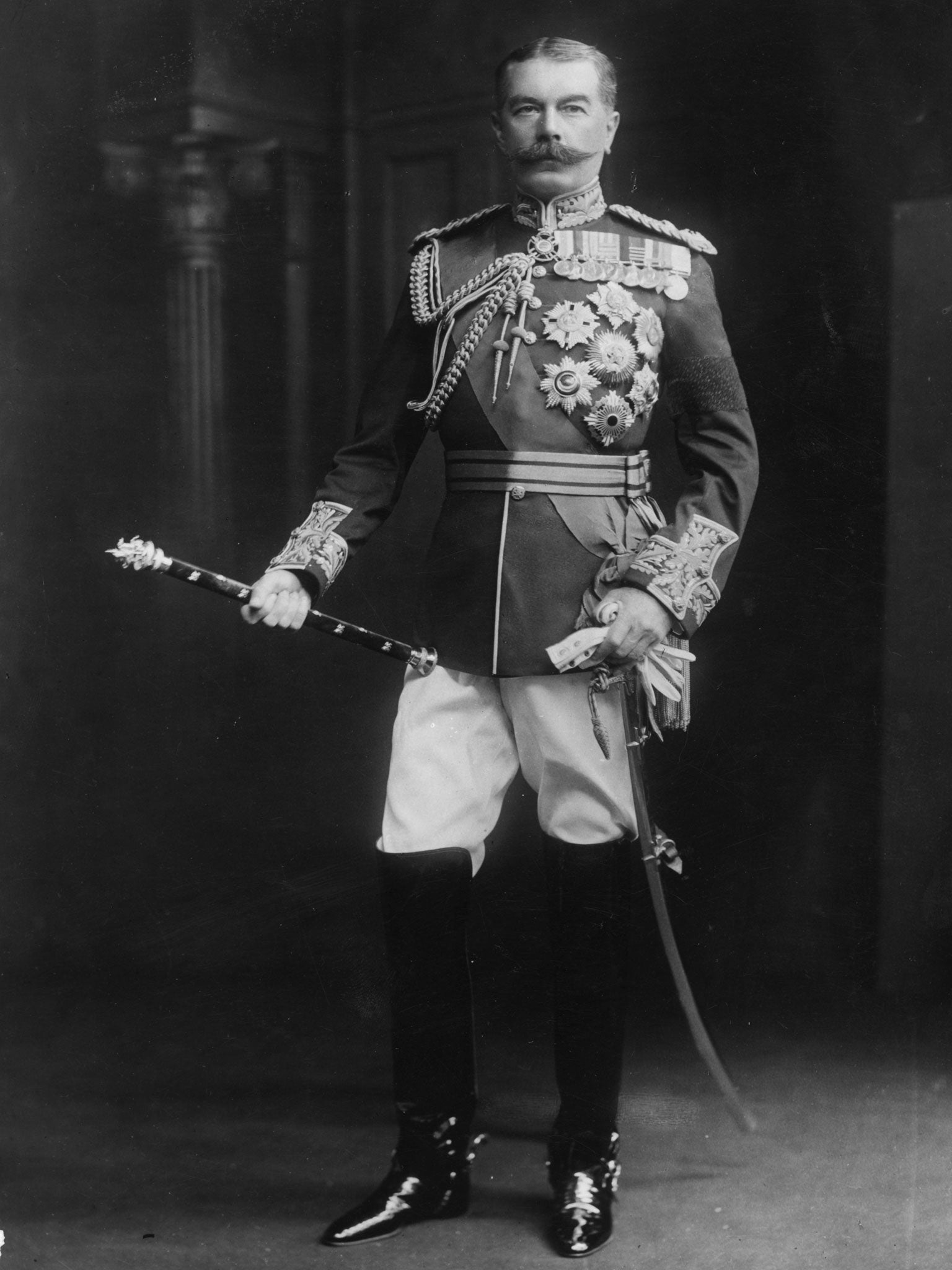A History of the First World War in 100 Moments: Lord Kitchener, father of the ‘New Army’, is lost at sea
Jamie Merrill on a naval disaster that spawned a host of conspiracy theories

Your support helps us to tell the story
From reproductive rights to climate change to Big Tech, The Independent is on the ground when the story is developing. Whether it's investigating the financials of Elon Musk's pro-Trump PAC or producing our latest documentary, 'The A Word', which shines a light on the American women fighting for reproductive rights, we know how important it is to parse out the facts from the messaging.
At such a critical moment in US history, we need reporters on the ground. Your donation allows us to keep sending journalists to speak to both sides of the story.
The Independent is trusted by Americans across the entire political spectrum. And unlike many other quality news outlets, we choose not to lock Americans out of our reporting and analysis with paywalls. We believe quality journalism should be available to everyone, paid for by those who can afford it.
Your support makes all the difference.Waiting on the platform of King’s Cross station on 4 June 1916 Field Marshal Horatio Herbert Kitchener – Lord Kitchener of Khartoum, suppressor of the Boers, governor of Egypt, slayer of the Sudanese rebels and Secretary of War – should have cut an impressive figure.
This was the hard-bitten soldier who had warned that the war would drag on for years and would be won by what he called the “the last million men”. His appointment as Secretary of War had led to the creation of the “New Army”, soon to be launched into action on the Somme. His face was well-known from those celebrated recruitment posters – yet he travelled openly, with just a small entourage of officers. Witnesses said that day he had seemed “abnormally agitated and anxious”.
The journey north to Thurso was the first part of an arduous journey whose final destination was Russia and a military conference with the flagging Tsarist regime. It has been suggested that the War Cabinet, frustrated by the stalemate on the Western Front and the shambles of Gallipoli, wanted him out of the way.
The latter disaster had prompted the King’s private secretary to describe Lord Kitchener’s position as “untenable”, and the Prime Minister was said to be close to accepting his resignation.
Instead, Kitchener was conveyed to Russia on the 11,000-ton fast cruiser, HMS Hampshire and protected by an escort of destroyers. Yet barely 24 hours after leaving London, Kitchener was missing, presumed drowned off the Orkney Islands.
A series of things had gone wrong. Foul weather forced a more exposed course. At the peak of the storm, the Hampshire’s escorts returned home, leaving the cruiser alone. Two miles from Orkney’s coast, HMS Hampshire struck a mine, believed to have been laid by German U-boat U-75. The cruiser sank in 15 minutes, leaving just 12 survivors.
The explosion had opened up a huge hole in the ship’s side, interrupting the electricity supply, which prevented the life boats from being launched. In addition to Kitchener and his staff, 643 sailors lost their lives. According to one survivor, the great man was last seen chatting calmly with two fellow officers as the ship went down. It took several hours for a rescue attempt to be organised
The loss was seen as a humiliation for the Royal Navy, which would surely never have lost such an important cargo in its glory days. Perhaps this encouraged the consipiracy theories that sprang up, after his death was reported two days later – in the press. Some whispered that he was a prisoner in Germany, or had fled to the Middle East. There was even a film, How Kitchener Was Betrayed (1921) questioning the Admiralty’s version of events.
What was certain was that he was the highest-ranking member of the military top brass to die in the war. And although Lord Northcliffe’s reaction – “Now we can start getting down to winning the war” – was not unique, the loss of HMS Hampshire left much of the nation in shock.
Less than a month later, the carnage of the Somme began. Kitchener had forged his New Army. He died before he could see it decimated.
Tomorrow: Trial of the conscientious objectors
The '100 Moments' already published can be seen at: independent.co.uk/greatwar
Join our commenting forum
Join thought-provoking conversations, follow other Independent readers and see their replies
Comments